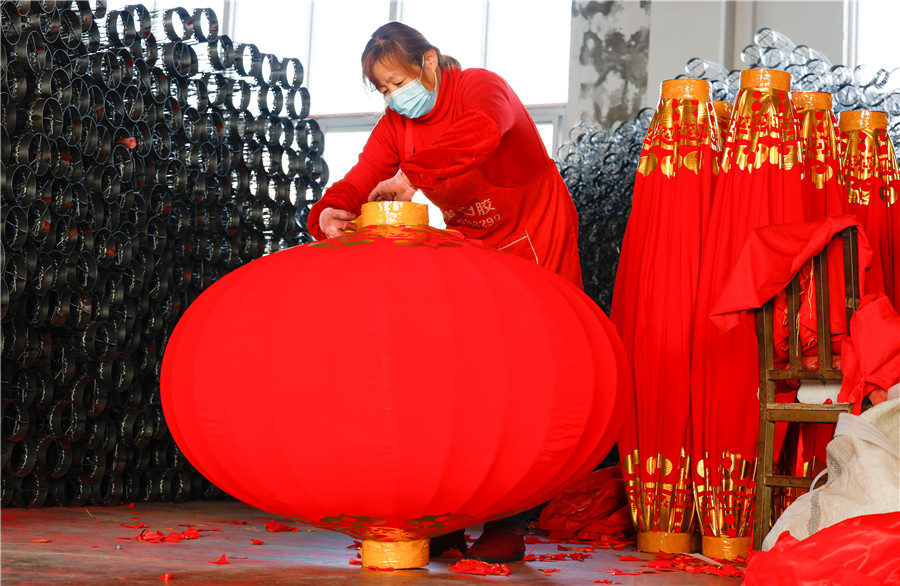Differentiated holiday travel rules urged
By WANG XIAOYU | China Daily | Updated: 2021-12-20 07:39

Travel policies for the Spring Festival holiday, which begins on Jan 31, should be devised in accord with the COVID-19 risk appraisals in different regions and groups, health officials said on Saturday.
"Whether it is necessary for people to stay put during the Spring Festival holiday should be based on risk evaluations and should not be uniform across the country," Liang Wannian, a member of the National Health Commission's expert panel, said during a news briefing.
Liang said increased movement during the Spring Festival travel rush, coupled with diminished resistance against respiratory diseases during winter, will lead to a heightened risk of the spread of COVID-19 and other infectious illnesses.
However, China also has several advantages, such as its prompt control of local outbreaks and high COVID-19 vaccination coverage.
Nearly 1.2 billion people have been fully vaccinated in China. As of Saturday, more than 2.67 billion doses had been administered, according to the commission.
"Most recent outbreaks are now linked to imported cases," Liang said. "As long as we strictly implement policies to control imported cases and the public practices personal protective measures, we are capable of stemming the virus' spread."
He said key regions and populations should abide by strict virus control measures.
"High-risk groups, such as the elderly, people with chronic diseases and pregnant women, should cut unnecessary trips and avoid gatherings, and the remaining population should adhere to protective measures," he said.
Liang added that regions that currently see new infections, port and border areas, and cities facing special circumstances-such as Beijing, which is preparing for the 2022 Winter Olympics-should maintain relatively rigorous control policies.
"The balance between disease control and reunion demands during the Spring Festival holiday should be maintained," he said.
Beijing authorities said on Sunday that residents are encouraged to stay in the area for the holiday, but the capital will not adopt a "one-size-fits-all" approach nor impose unnecessary measures.
The city will facilitate the traveling of people who have a strong desire to return to their hometowns, such as college students and migrant workers. More activities will also be held during the holiday to benefit the residents who choose to stay put.
He Qinghua, of the National Health Commission's Bureau of Disease Control and Prevention, said the global COVID-19 situation remains serious and complicated, with the new Omicron variant spreading to over 70 countries and regions.
"Caution regarding the virus during the New Year and Spring Festival holidays should not be relaxed even a single bit," He said on Saturday.
The domestic epidemic situation-with the Delta variant as the dominant strain-remains stable, He said.
Local infection clusters in Yunnan and Heilongjiang provinces, as well as in Shanghai, the Inner Mongolia autonomous region and parts of Zhejiang province, have been gradually brought under control.
The outbreaks in Shaoxing, Zhejiang, and in Shaanxi and Guangdong provinces, are still developing and at risk of spreading, He said.
China reported 44 confirmed local infections and 39 imported infections on Saturday, the commission said in its daily report on Sunday.
Beijing said on Sunday that a student in a painting studio in Tongzhou district tested positive for the virus, and screening and an epidemiological investigation are underway.
As for the Omicron variant, Changsha, capital of Hunan province, reported two imported cases on Saturday, making it the third city on the Chinese mainland to have identified the variant after Tianjin and Guangzhou, capital of Guangdong.
























